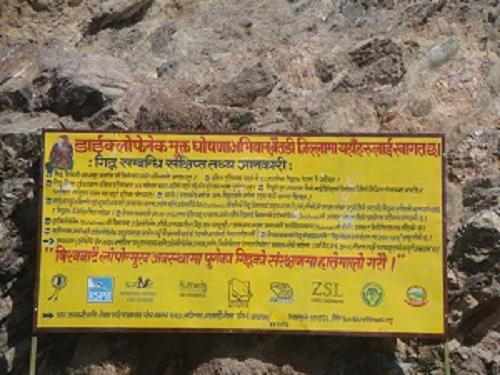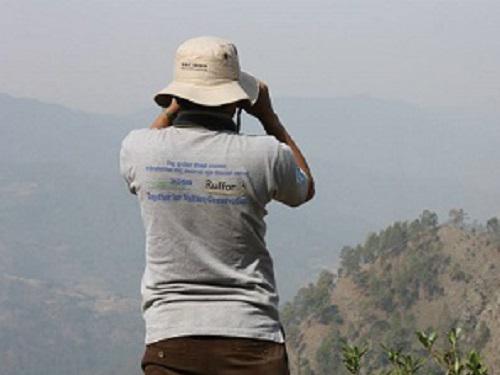Sagar Paudel
This project aims to support Vulture Conservation Action Plan for Nepal by declaring provisional vulture safe zones where the use of diclofenac is prohibited, vultures and nests are continuously monitored and the locals are educated and made aware of the issue.

Diclofenac Free Zone Declaration.
Populations of White-rumped vulture Gyps bengalensis, Long-billed vulture Gyps indicus, and Slender-billed vulture Gyps tenuirostris have declined catastrophically (> 90%) in India, Pakistan, and Nepal since the early 1990s due to use of veterinary drug Diclofenac, prompting IUCN to classify their status as critically endangered. Monitoring of vultures in Nepal indicates declines of a similar magnitude with a 91% decrease in numbers up to 2011 (Chaudhary et al. 2011). Vulture Conservation Action Plan for Nepal 2009-2013 and Manifesto chalked out by Saving Asia's Vulture from Extinction (SAVE) consortium clearly identify the establishment and expansion of Vulture Safe Zones (VSZs) that are areas free of diclofenac holding significant vulture numbers as a means of in-situ conservation of critically endangered vulture species through community-based approaches. VSZs are started out to halt this alarming decline through monitoring of killer drugs to secure diclofenac-free food, minimizing threats to vultures and same time involving community groups in conservation.

Vulture Monitoring
Baitadi and Dadeldhura districts, located in far west Nepal, support few remaining nests of imperilled vultures in wild and abut with India and other districts of Nepal holding few colonies of vultures. Before they completely vanished from wild, it is necessary to ensure safe habitat for vultures by ecological monitoring, and by educating and building capacity of local government bodies and community. Moreover, due to their large home range, every colony of vulture existing in wild should be monitored and conserved for the species recovery.
The project will establish two new districts as Diclofenac Free Zones (or Provisional VSZs) to ensure safe and diclofenac-free habitat for vultures by continuous ecological monitoring, raising awareness by training and involving community in conservation, and engaging local government bodies in declaring the districts diclofenac free.